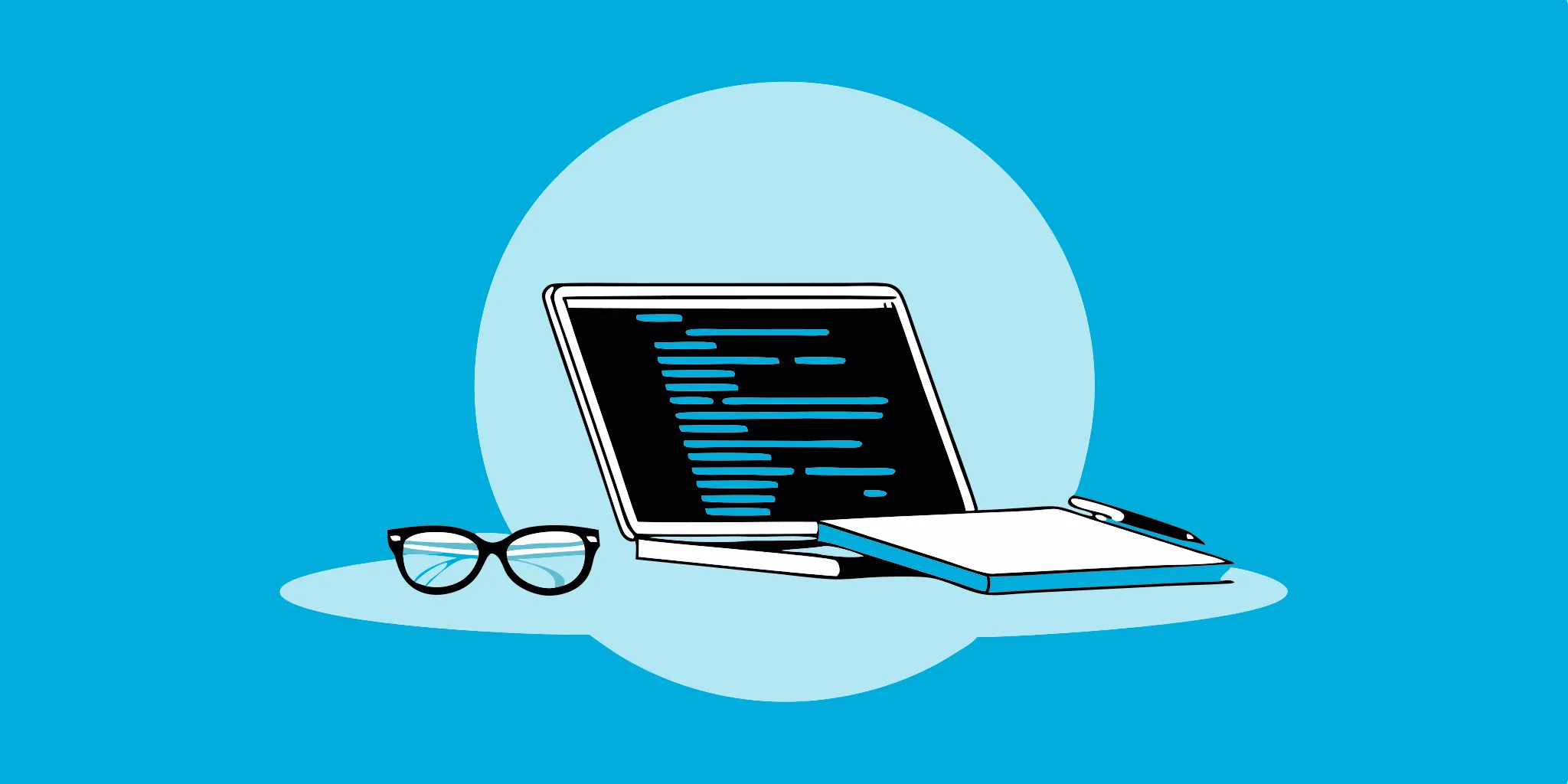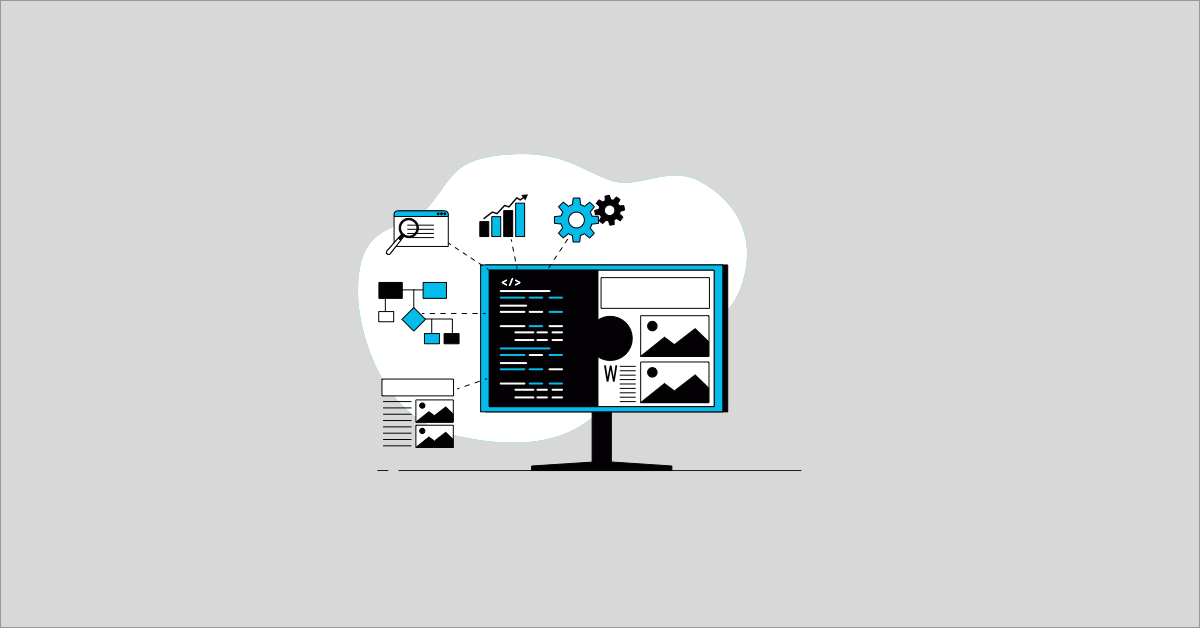Love using apps that *just work*? You can thank a QA engineer for that. These detail-oriented pros are the gatekeepers of quality in software. They hunt down and fix bugs before they ruin your experience. Curious about what a QA engineer really does? This article breaks down their core responsibilities, must-have skills, and exciting career paths. We'll cover everything from testing strategies to how AI is changing the game, showing you exactly why QA engineers are essential to modern software development.
Key Takeaways
- QA engineers blend technical expertise and strong communication: They act as quality gatekeepers, using programming skills and testing tools to identify and resolve defects, while effectively communicating with developers and stakeholders to ensure a smooth user experience.
- The QA field is dynamic, requiring adaptability and continuous learning: Staying current with emerging technologies like AI and ML is crucial. Automating repetitive tasks and integrating seamlessly with development workflows enhances efficiency and quality.
- QA offers diverse career paths with growth potential: From entry-level roles to specialized areas like automation or security, opportunities abound. Building a strong portfolio, gaining practical experience, and continuous learning are essential for career advancement.
What Does a QA Engineer Do?
A QA engineer plays a vital role in software development, ensuring the release of high-quality, bug-free products. They're the guardians of quality, dedicated to finding and fixing defects before they reach the end-user. Think of them as meticulous detectives, investigating every corner of the software to guarantee it functions as expected. QA isn't just about coding; it's about understanding the software's purpose and making sure it delivers on its promise. This often involves understanding user needs and expectations to ensure a smooth and enjoyable experience.
QA Engineer Roles and Responsibilities
QA engineers are essential members of development teams, working closely with developers and product managers. Their core mission is to improve software quality through a variety of testing methods. They don't just find bugs; they analyze the software's behavior, identify potential problems, and work with developers to create solutions. This collaborative approach ensures a smooth user experience and a polished final product. A strong QA engineer understands the entire software development lifecycle and how their role contributes to each stage. They're advocates for the user, constantly striving to create the best possible experience.
Key Responsibilities of a QA Engineer
A QA engineer's daily tasks involve a mix of planning, testing, and communication. They design and execute test cases, both manual and automated, to identify defects. When bugs are found, they meticulously document them, providing clear and concise explanations to developers. This documentation is crucial for understanding the issue and finding effective solutions. QA engineers also track the progress of bug fixes and verify that the solutions work as intended. They're responsible for ensuring the software performs well at every stage of development, from initial design to final release. Beyond testing, they contribute to improving the overall development process, suggesting improvements to workflows and advocating for best practices. They might also research new tools and technologies to enhance testing efficiency and accuracy.
Must-Have QA Engineer Skills
A successful QA engineer blends technical skills with strong communication abilities. Let's break down the key skills you'll need to excel in this role.
Essential Technical Skills for QA Engineers
QA engineers are the gatekeepers of quality, ensuring software meets rigorous standards before it reaches users. This demands a strong technical foundation. You'll need a good grasp of programming languages like Java, Python, or JavaScript. This allows you to understand the codebase, write test scripts, and even automate testing processes. Experience with testing tools like Selenium is also essential for automating repetitive tasks and increasing efficiency. Finally, familiarity with various software platforms—from computers and mobile phones to game consoles—is crucial for comprehensive testing. After all, users interact with software on a multitude of devices.
Soft Skills for QA Success
Technical skills are only half the equation. QA engineers also need top-notch soft skills. Communication is key, as you'll be collaborating with developers, product managers, and other stakeholders. You'll need to clearly articulate complex technical issues, provide constructive feedback, and advocate for quality. Critical thinking and problem-solving abilities are also essential for identifying the root cause of bugs and developing effective solutions. A detail-oriented approach is a must—overlooking a small detail can have significant consequences. Strong collaboration skills are vital for working effectively within a team and ensuring everyone is aligned on quality goals.
QA Engineering Tools and Tech
As software becomes increasingly complex, QA engineers rely on a diverse toolkit to ensure quality. These tools help streamline processes, improve accuracy, and keep pace with evolving development methodologies. Let's explore some key categories and examples:
Testing Frameworks and Automation Tools
Testing frameworks provide a structured foundation for organizing and executing tests. Popular frameworks like Selenium, Appium, and Cypress automate interactions with web and mobile applications, allowing for efficient and repeatable testing. For API testing, tools like Postman are essential for validating functionality and performance. Mastery of these tools empowers QA engineers to automate repetitive tasks and focus on more complex testing scenarios. This automation is key for continuous integration and continuous delivery (CI/CD) pipelines, enabling rapid feedback and faster release cycles. Choosing the right framework depends on the specific project needs, including the type of application, programming languages used, and the desired level of automation. Learn more about how MuukTest integrates with CI/CD workflows for seamless testing.
Tools for Bug Tracking and Project Management
Effective bug tracking and project management are crucial for a smooth QA process. Tools like Jira, Trello, and Asana help teams organize tasks, track progress, and manage defects. These platforms facilitate collaboration between QA engineers, developers, and product managers, ensuring that issues are identified, documented, and resolved efficiently. Clear communication and well-defined workflows are essential for successful bug tracking. These tools are vital for streamlining the testing process and improving overall software quality. Integrating these tools with testing frameworks and automation tools further enhances efficiency and provides a centralized hub for managing the entire QA lifecycle. For a quick start guide on implementing effective QA processes, check out MuukTest's QuickStart resource.
Choosing the Right QA Tools for Your Needs
Selecting the right QA tools is a bit like assembling the perfect toolkit—you need the right instruments for the job. It's essential to consider your project's specific requirements, team dynamics, and the type of software you're building. Testing a mobile app, for example, requires different tools than testing a web application. Consider whether you're working with native mobile apps, hybrid apps, or web apps, as this will influence your tool selection.
Think about the programming languages your team uses. If your developers primarily work with Java, choosing Java-compatible testing frameworks and tools streamlines the process. Similarly, consider your team's experience level. If your team is new to automated testing, starting with a user-friendly framework with good documentation and community support can be beneficial. Services like MuukTest's automated testing solutions can help bridge the gap and provide expert support.
Finally, consider your target level of automation. While full automation is often the goal, it's not always feasible or necessary. Some projects might benefit from a mix of manual and automated testing. Understanding your project's specific needs helps you choose tools that support your testing strategy and maximize efficiency. For practical advice and actionable steps, MuukTest's QuickStart guide offers a deeper dive into building a robust QA process.
Emerging QA Technologies
The field of QA is constantly evolving, with new tools and technologies emerging to address the challenges of modern software development. Artificial intelligence (AI) and machine learning (ML) are playing an increasingly important role in areas like test case generation, automated test execution, and predictive analysis. These technologies can help QA engineers identify potential issues earlier in the development cycle, reducing costs and improving software quality. Staying updated with these advancements, as discussed in this Medium article, is essential for QA professionals. Exploring resources like MoldStud can provide valuable insights into the latest trends and their impact on software quality. By embracing these emerging technologies, QA engineers can enhance their skills and contribute to building better software. See how MuukTest leverages AI to achieve comprehensive test coverage within 90 days by visiting our customer page. You can also explore our pricing plans to see how we can help you achieve your QA goals.
The QA Engineer Workflow: A Step-by-Step Guide
A QA engineer's daily work involves a blend of technical skills, collaboration, and a sharp eye for detail. Let's break down a typical workflow:
Creating and Executing Test Plans
QA engineers develop and implement test plans that outline the testing strategy and objectives. This involves understanding the software requirements, identifying potential problem areas, and designing specific tests to address those areas. These tests can range from manual checks to automated scripts, ensuring comprehensive coverage. They use various testing methodologies, like black-box testing, where they evaluate the software's functionality without looking at the internal code, or white-box testing, which examines the internal workings of the code. The goal is to create a roadmap for testing that ensures all aspects of the software are thoroughly vetted. At MuukTest, our expert QA team uses these techniques to achieve complete test coverage within 90 days, giving you confidence in your software's quality. Learn more about our test automation services.
Identifying and Documenting Bugs Effectively
Finding bugs is just the first step. QA engineers meticulously document every defect, providing detailed descriptions, steps to reproduce the issue, and its severity level. This documentation is crucial for developers to understand and fix the problems. Using bug-tracking systems helps organize and prioritize these defects, ensuring a smooth workflow between QA and development teams. Clear and concise documentation is essential for effective collaboration and tracking progress.
Collaboration with Development Teams
QA isn't a solo act. QA engineers work closely with developers and other stakeholders to resolve identified defects. This involves explaining the issues, discussing potential solutions, and verifying the fixes. Strong communication skills are vital for this collaborative process, ensuring everyone is on the same page and working towards a common goal. This collaborative approach fosters a shared understanding of quality standards and helps deliver a polished final product. At MuukTest, we prioritize collaboration and use tools like Slack to facilitate seamless communication and keep the workflow moving efficiently. See how our scalable solutions can be tailored to your needs on our pricing page. Ready to get started? Check out our QuickStart guide.
Types of QA Testing You Should Know
Software testing comes in many forms, each serving a specific purpose. Think of it like a toolbox—you need different tools for different jobs. Here’s a rundown of some common QA testing types:
Functional Testing Explained
Functional testing ensures the software behaves as expected and meets the defined requirements. It’s all about checking if the features and functions of your application work correctly. Testers provide specific inputs and examine the outputs, comparing them against the expected results. Imagine testing the login button on a website—does it take you to the correct page after entering valid credentials? That's functional testing in action. This type of testing is crucial for identifying bugs early in the development process. For a deeper dive, learn more about functional testing.
Performance Testing: What You Need to Know
Performance testing assesses how a system performs under various workloads. It helps determine the responsiveness, stability, and scalability of the software. This testing identifies bottlenecks and ensures the application can handle the anticipated number of users. For example, performance testing can reveal how an e-commerce site performs during a flash sale with a large influx of traffic. Understanding performance testing metrics is key to optimizing your software's performance.
Security Testing Essentials
Security testing focuses on identifying vulnerabilities and risks in the software that could compromise sensitive data. It aims to protect the system from potential threats and ensure data integrity and confidentiality. Think of it as checking the locks on your doors and windows to prevent unauthorized access. Security testing involves various techniques, including penetration testing and vulnerability scanning, to uncover potential weaknesses. A robust security testing strategy is more important than ever in today's interconnected world.
User Acceptance Testing (UAT) Explained
User acceptance testing (UAT) is the final stage of testing where actual users interact with the software to verify it meets their needs and requirements. This testing validates the end-to-end business flow and ensures the software is user-friendly and fit for its intended purpose. UAT is like a test drive before buying a car—it allows users to experience the software firsthand and provide feedback. Effective UAT planning is essential for a successful software launch. This final check ensures the software is ready for the real world.
How QA Fits into Agile Development
Agile development, a fast-paced approach to building software, relies heavily on QA engineers. They're not just testers; they're integral members of the development team, collaborating closely with developers and product managers. This tight integration allows for continuous testing and feedback, making the development cycle more efficient and responsive to evolving user needs.
In Agile, testing isn't an afterthought; it's baked into every stage. QA engineers work alongside developers, providing immediate feedback and identifying potential issues early on. This proactive approach prevents bugs from becoming larger problems, saving time and resources. This collaborative environment fosters a shared understanding of quality and promotes continuous improvement. For a deeper dive into Agile methodologies, explore this resource from the Agile Alliance.
QA engineers in Agile also champion the user experience. They consider how users will interact with the software and strive to create the best possible experience. This user-centric approach ensures the software is not only functional but also intuitive and enjoyable. This focus on user experience is crucial for the success of any software product. Learn more about user-centric design and its impact on software development in this article.
Common QA Challenges and Solutions
QA engineers face a unique set of challenges. They're responsible for ensuring software quality while keeping up with tight deadlines and ever-evolving technologies. Let's explore some common hurdles and practical solutions.
Balancing Thoroughness and Speed in QA
One of the biggest challenges in QA is balancing thoroughness with speed. We want to test every possible scenario, but time is often limited. Resources might be stretched thin, development phases could run long, or testing time might be underestimated. Dependencies on other project phases can also create timeline challenges.
A practical solution is to involve QA early in the development process. When testers collaborate with developers from the start, they can address code quality during development and perform incremental testing. This approach helps prevent bugs early on and streamlines the overall testing process. At MuukTest, we integrate seamlessly into your development workflow to ensure quality is baked in from the beginning. Learn more about our test automation services.
Effective Communication for QA Professionals
Effective communication is crucial for successful QA. Collaboration between developers and QA engineers is essential, but coordinating testing and bug fixing can be tricky. Sometimes, developers might view testing as the final step, assuming testers only need user journeys and technical requirements. This can lead to misunderstandings and slow things down.
To bridge this communication gap, foster open and continuous dialogue between developers and testers. Regular meetings, clear documentation, and a shared understanding of project goals can significantly improve collaboration. Tools like Jira or Trello can help track bugs and keep everyone on the same page. At MuukTest, we prioritize communication and collaboration with our clients. See how we get started with our QuickStart guide.
Adapting to New Technologies in QA
The tech landscape is constantly evolving, and QA engineers need to adapt quickly. Teams often juggle unstable test environments, insufficient test data, automation hurdles, performance optimization, security concerns, and the pressure to innovate.
A practical approach is to gradually transition to automation. Start by identifying repetitive test cases and automating them using tools like Selenium or TestNG, suggested by BrowserStack. This frees up time for more complex testing and exploration of new technologies. At MuukTest, we use cutting-edge AI-powered tools to automate and optimize your testing process. Explore our pricing plans or learn more about our customers.
QA Engineer Career Path and Growth Opportunities
So, you’re interested in a career in QA engineering? It’s a field with tons of opportunity for growth and specialization. Let’s explore some common career paths and areas of expertise.
From Entry-Level to Senior QA Roles
Most QA engineers start in entry-level positions like QA Tester or QA Analyst. In these roles, you'll gain hands-on experience testing software, finding bugs, and learning about quality assurance processes. You’ll work with test cases, explore different testing methods, and start to understand the software development lifecycle. As you gain experience and demonstrate your skills, you can move into more senior roles. A common progression is to Senior QA Engineer, where you'll take on more complex projects and potentially mentor junior team members. From there, you might consider leadership positions such as QA Lead or QA Manager, where you'll oversee teams, manage projects, and contribute to overall quality strategy. Resources like Built In offer further information on these roles and their respective responsibilities.
QA Engineering Specializations to Explore
One of the best parts of QA engineering is the opportunity to specialize. As you progress, you might find yourself drawn to a particular area of testing. Some popular specializations include automation testing, performance testing, security testing, and usability testing. Automation engineers develop and maintain automated test scripts, which helps streamline the testing process and improve efficiency. Performance testers focus on how well software performs under stress, ensuring it can handle a large number of users or transactions. Security testers identify vulnerabilities in software that could be exploited by hackers. Usability testers evaluate how user-friendly software is and identify areas for improvement. Each specialization requires a unique skill set and offers a different perspective on software quality, allowing you to tailor your career path to your interests and strengths.
How to Become a QA Engineer: A Practical Guide
So, you're intrigued by the world of QA and wondering how to break into this dynamic field? It's a rewarding career path for those who enjoy problem-solving, have a keen eye for detail, and are passionate about delivering high-quality software. Here’s a practical guide to help you get started:
Steps to Becoming a QA Engineer
Landing your dream QA job requires more than just technical skills. It's a combination of practical experience, networking, and continuous learning. Here's how to combine these elements for a successful start:
Gaining Practical Experience
Hands-on experience is invaluable for aspiring QA engineers. While you're learning the ropes, real-world projects will make your resume stand out. Start with internships – they offer a structured environment to learn and apply your skills. Personal projects are another great avenue. Build something you're passionate about, even a simple app, and rigorously test it. This demonstrates initiative and gives you something concrete to discuss in interviews. Contributing to open-source projects is another fantastic way to gain practical experience and collaborate with other developers. You'll be working on real software used by real people, which is invaluable.
Networking and Building Connections
The tech world thrives on connections. Joining online communities and forums dedicated to software testing can open doors to mentorship opportunities and valuable insights from seasoned professionals. Attend industry events and conferences – they're not just about learning; they're about meeting people who are already working in the field. Networking can lead to job opportunities, mentorship, and a supportive community to help you throughout your career.
Educational Pathways for QA Engineers
While a traditional computer science degree can be beneficial, it's not the only path to becoming a QA engineer. Many successful QA professionals come from diverse educational backgrounds. What matters most is a genuine interest in software quality and a willingness to learn. Online courses and certifications focused on software testing methodologies, automation tools, and quality assurance principles can significantly enhance your qualifications. These focused programs can provide practical skills and demonstrate your commitment to the field. A bachelor's degree in a related field combined with relevant experience is often a strong foundation, but continuous learning is key in this ever-evolving industry. Stay curious, keep exploring, and never stop learning.
How to Become a QA Engineer: A Practical Guide
So, you're intrigued by the world of QA engineering and want to know how to break into this field? It's a rewarding career path for detail-oriented problem-solvers who enjoy ensuring software quality. Here’s a roadmap to help you get started:
Education and Qualifications for QA
Most QA engineer roles ask for a bachelor's degree in computer science or a related field. This provides a solid foundation in programming, software development, and testing principles. While a degree can give you a competitive edge, it isn’t always mandatory.
Building Your QA Experience and Portfolio
Landing your first QA role often hinges on demonstrating practical experience. Internships provide hands-on training and real-world project exposure, making your resume stand out. Entry-level positions, even if not strictly QA-focused, can offer valuable experience in software development or testing. Any exposure to these areas strengthens your qualifications.
Consider supplementing your experience with online courses or certifications. Platforms like Coursera and Udemy offer various courses on software testing and QA methodologies. These can help you develop specialized skills and demonstrate your commitment to the field.
Finally, focus on developing strong programming and testing skills. Familiarize yourself with different programming languages like Java, Python, or JavaScript, and learn about various testing frameworks and tools. Building a portfolio of personal projects or contributing to open-source projects on GitHub can showcase your abilities to potential employers. This demonstrates your initiative and provides tangible examples of your skills.
Key Metrics QA Engineers Track
QA engineers aren't just randomly clicking buttons; they use data to measure their effectiveness and the quality of the software. Tracking key metrics helps them understand where the bugs are hiding and how efficient their testing processes are. These metrics provide valuable insights into the health of the codebase and guide improvements in the testing process itself. Here are a few essential metrics they keep an eye on:
Defect Density
Think of defect density as a bug counter for your code. It measures the number of defects found in a specific amount of code. A lower defect density generally means higher quality code, which translates to happier users and a more robust product. It's a valuable metric for understanding the overall health of your codebase and identifying areas that need extra attention or refactoring. For a deeper dive into QA metrics and their significance, check out this helpful resource on quality assurance engineers.
Test Effectiveness
How good is your bug-catching net? Test effectiveness measures how well your tests actually find bugs. A high test effectiveness score means your testing process is doing its job—catching those pesky defects before they reach your users and potentially cause problems. This metric helps you refine your testing strategies, identify gaps in your test suite, and ensure you're using the right tools and techniques for the job. Want to learn more about the diverse roles and responsibilities of a QA engineer? This article on QA engineers provides a comprehensive overview.
Test Coverage
Are you testing every nook and cranny of your software? Test coverage tells you how much of your software your tests actually touch. High test coverage is crucial for ensuring all functionalities are thoroughly vetted and minimizing the risk of undiscovered bugs. It helps you identify potential issues early in the development cycle, saving time and resources down the line by preventing costly fixes later on. This glossary of QA terms provides a clear definition of test coverage and other important concepts in quality assurance.
Time to Resolution
Once a bug is found, how long does it take to fix it? Time to resolution (TTR) measures the time it takes to squash a bug from the moment it's discovered to when it's resolved and verified. A shorter resolution time is key for keeping projects on track, minimizing disruptions, and maintaining software quality throughout the development process. Efficient bug fixing contributes to a smoother development cycle and faster releases. This resource on QA engineer skills offers insights into the importance of time to resolution and other essential skills for QA professionals.
The Future of QA Engineering: Trends and Predictions
The field of QA engineering is constantly evolving, adapting to new technologies and development methodologies. Let's explore some of the key trends shaping the future of QA.
The Impact of AI and Machine Learning on QA
Artificial intelligence (AI) and machine learning (ML) are transforming software testing. These technologies can automate complex testing tasks and analyze vast amounts of data to identify patterns and predict defects, improving the efficiency and effectiveness of QA processes. Experts predict AI and ML will play an increasingly important role in areas like test case generation, test data management, and defect prediction. This integration of AI and ML into QA should lead to higher quality software and faster release cycles.
The Evolving Role of QA in DevOps and Agile
As software development methodologies shift towards DevOps and Agile, the role of QA is also changing. QA engineers are becoming more integrated into the development lifecycle, working closely with developers and operations teams to ensure quality throughout the entire process. This shift requires QA professionals to develop new skills and adopt new tools and technologies. The emphasis is on continuous testing and continuous integration, enabling faster feedback loops and quicker releases. Industry reports, highlight these transformations and the growing importance of quality engineering in modern software development. QA engineers need to be adaptable and embrace continuous learning to stay ahead of the curve. Emerging trends suggest a move towards more strategic quality practices, with QA professionals playing a key role in driving quality throughout the software development lifecycle.
QA Engineer Salary Expectations
So, you’re interested in becoming a QA engineer—smart move! It’s a growing field with tons of opportunity. But one of the biggest questions you probably have is, “What’s the pay like?” Let’s break down the QA engineer salary outlook and the key factors that influence how much you can earn.
Factors That Influence QA Engineer Compensation
Like most tech roles, a QA engineer's salary isn't a fixed number. Several factors play a role, and understanding them can help you negotiate or find the best job opportunities. Experience is a major one; entry-level positions naturally pay less than senior roles. Where you live also matters. Major tech hubs like San Francisco or New York often command higher salaries due to the higher cost of living and increased demand. Finally, the specific industry you work in can influence your earning potential. Some industries, like finance or gaming, tend to offer higher salaries for QA professionals.
QA Engineer Salary by Experience Level
As you might expect, experience plays a significant role in QA engineer salary expectations. Entry-level positions typically start around $69,619, but your earning potential grows considerably as you gain experience. With seven or more years under your belt, the average salary jumps to $117,365, according to Built In’s 2025 QA Engineer Salary report. This significant increase highlights the value that experience brings, as senior QA engineers often lead projects, mentor junior team members, and contribute to overall quality strategy.
QA Engineer Salary by Location
Location significantly impacts QA engineer salaries. Built In’s data reveals that San Francisco leads the pack with the highest average salary at $140,105. Remote positions follow closely behind at $118,544, offering flexibility and competitive pay. Other high-paying cities include Atlanta, Pittsburgh, and Los Angeles. The national average base salary for a QA Engineer sits at $99,648, with total compensation (including bonuses) reaching $119,641. So, where you choose to work can significantly influence your earning potential.
Frequently Asked Questions
What's the difference between a QA Tester, QA Analyst, and QA Engineer?
While the titles are sometimes used interchangeably, they often reflect different levels of responsibility. A QA Tester typically focuses on executing test cases, while a QA Analyst dives deeper into analyzing test results and identifying trends. A QA Engineer usually has broader responsibilities, including designing test strategies, automating tests, and collaborating closely with developers. Think of it as a progression from hands-on testing to a more strategic role.
Do I need a computer science degree to become a QA Engineer?
While a computer science degree is often preferred, it's not always required. Practical experience, demonstrable skills, and relevant certifications can often compensate for a lack of a formal degree. Focus on building a strong portfolio that showcases your testing abilities and technical skills.
What are the most in-demand skills for QA Engineers right now?
The most sought-after skills include a solid understanding of software testing methodologies, proficiency in at least one programming language (like Java, Python, or JavaScript), experience with automation tools (like Selenium or Appium), and strong communication and collaboration skills. Knowledge of emerging technologies like AI and machine learning in testing is also becoming increasingly valuable.
How can I gain experience if I'm just starting out in QA?
Look for internships, entry-level positions (even if not strictly QA-focused), or volunteer to test software for open-source projects. Online courses and certifications can also help you build skills and demonstrate your commitment to the field. Building a personal portfolio of test projects is another great way to showcase your abilities.
What's the career progression like in QA Engineering?
A typical path starts with entry-level roles like QA Tester or QA Analyst, progressing to Senior QA Engineer, and then potentially moving into leadership positions like QA Lead or QA Manager. You can also specialize in areas like automation testing, performance testing, or security testing, allowing you to tailor your career path to your interests.











